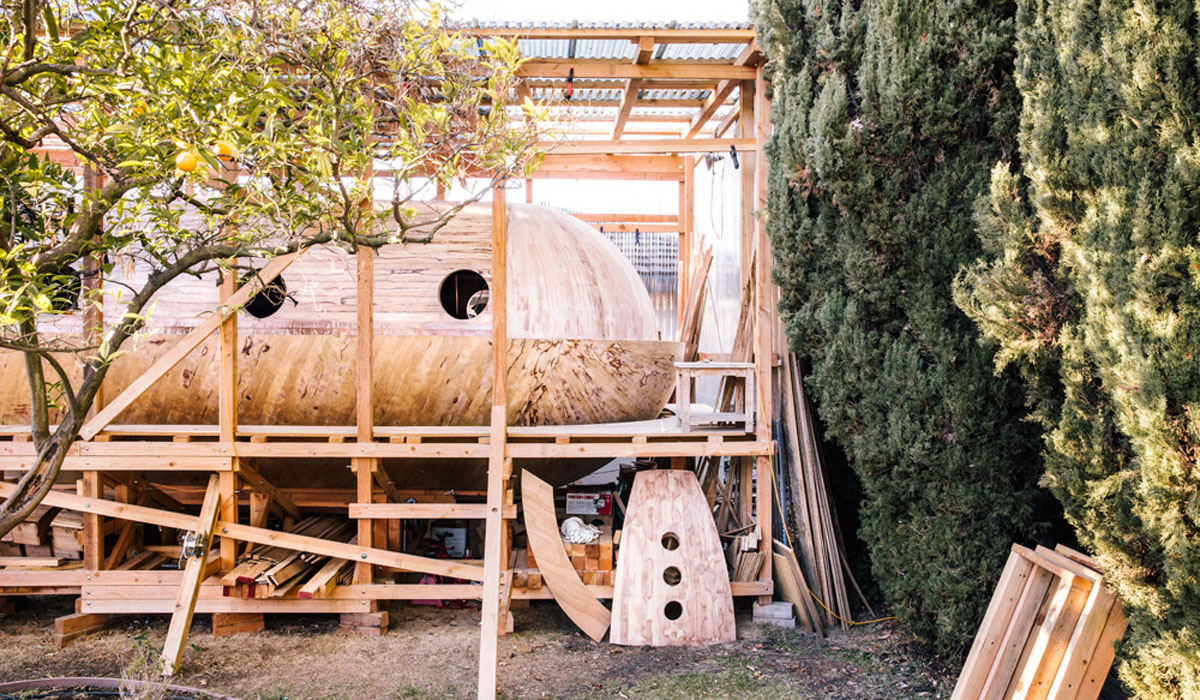
Chris Robinson has spent the last two years building this tsunami-proof capsule in his Palo Alto backyard. Photos by Mark Mahaney

“No one is going to wear a jet pack on their back as they work in their office,” Robinson says. A sea-proof pod seemed like a (slightly) more reasonable solution. Photos by Mark Mahaney
Robinson drew inspiration from oil-derrick escape pods and a Canadian artist who constructs wooden spheres that hang in trees and double as hotel rooms.
“Very early in the project it became about building this interesting object,” Robinson says. “I’m not a survivalist. I don’t even have life jackets.” Photos by Mark Mahaney
If the sphere doesn’t sink in test runs, he’ll use Airbnb to rent the tsunamiball for tidal wave-safe overnights in Palo Alto. Photos by Mark Mahaney

Chris Robinson has spent the last two years building this tsunami-proof capsule in his Palo Alto backyard. Photos by Mark Mahaney

“No one is going to wear a jet pack on their back as they work in their office,” Robinson says. A sea-proof pod seemed like a (slightly) more reasonable solution. Photos by Mark Mahaney

Robinson drew inspiration from oil-derrick escape pods and a Canadian artist who constructs wooden spheres that hang in trees and double as hotel rooms.

“Very early in the project it became about building this interesting object,” Robinson says. “I’m not a survivalist. I don’t even have life jackets.” Photos by Mark Mahaney

If the sphere doesn’t sink in test runs, he’ll use Airbnb to rent the tsunamiball for tidal wave-safe overnights in Palo Alto. Photos by Mark Mahaney
Chris Robinson has never built a boat or even sailed, and he admits that a tidal wave is unlikely to hit Silicon Valley. But in his Palo Alto backyard, Robinson has spent the past two years building a defense against one: a 22-foot-long, 10-foot-wide, 8.5-foot-high tsunami-proof capsule made of plywood and epoxy.
After watching coverage of the Fukushima disaster and a flood-devastated Japan, Robinson started working on an escape route. “No one is going to wear a jet pack on their back as they work in their office,” Robinson says, so he imagined a more buoyant solution—drawing inspiration from oil-derrick escape pods and a Canadian artist who constructs wooden spheres that hang in trees and double as hotel rooms.

